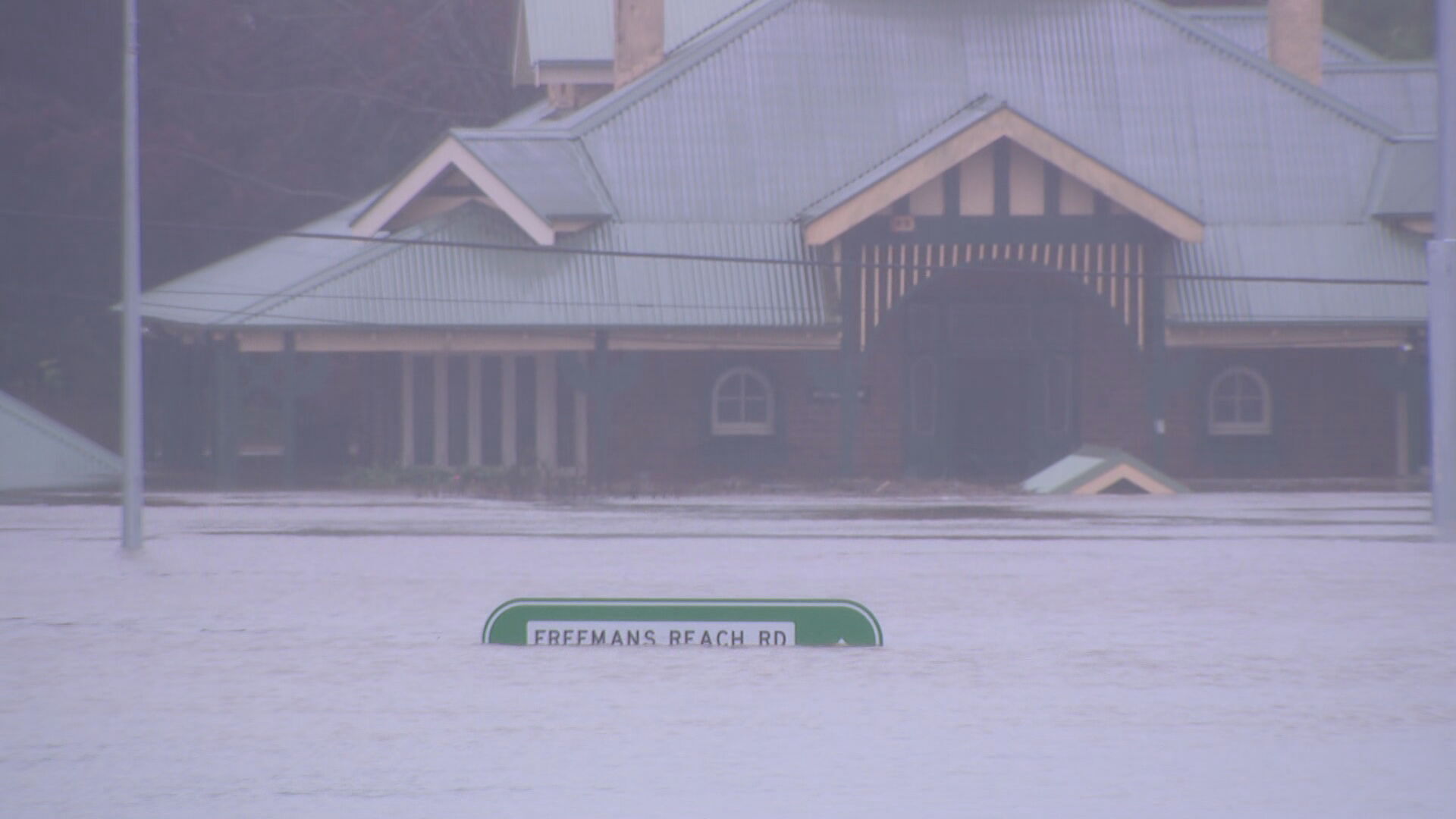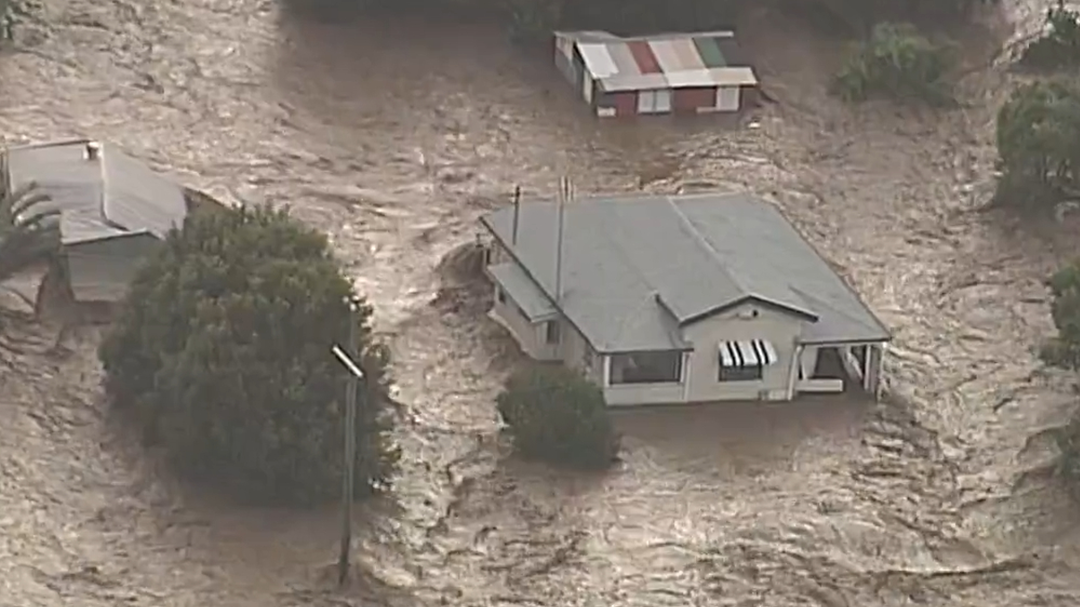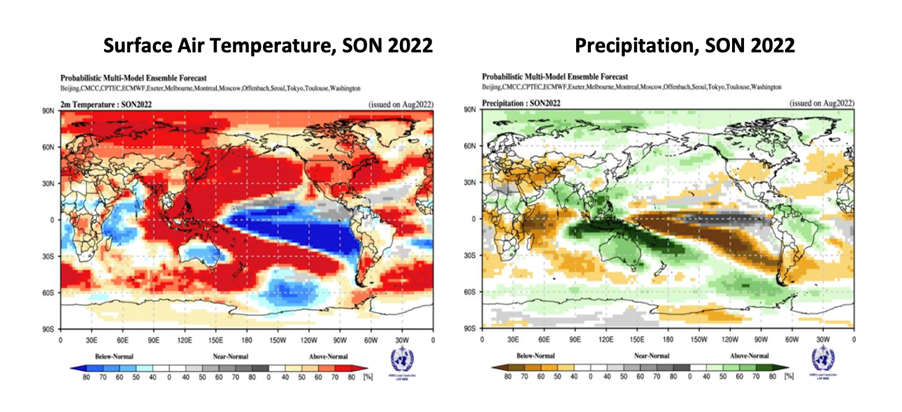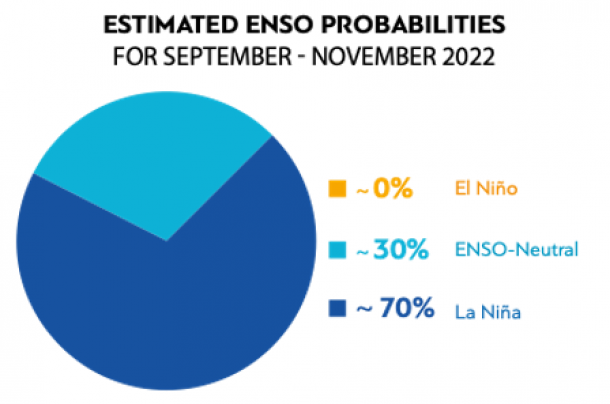The United Nations weather agency has predicted a rare "triple-dip" La Nina, adding weight to the Australian weather bureau's warning of the likelihood of another wet summer to come.
The World Meteorological Organisation yesterday said it was likely the weather pattern would hold until the end of the year, which would be its first time this century lasting three consecutive summers.
The WMO El Nino/La Nina Update put the probability of the La Nina event, which began in September 2020, continuing into September to November at 70 per cent.
READ MORE: Students suspended from exclusive Sydney private school over 'offensive' online chats

There is a 55 per cent chance it will continue through until December to February and just a 5 per cent chance of the generally drier El Nino developing.
The WMO stressed the importance of viewing the current El Nino/La Nina conditions in the context of human-induced climate change increasing temperatures, exacerbating extreme weather affecting rainfall patterns.
"It is exceptional to have three consecutive years with a la Nina event," WMO Secretary-General Professor Petteri Taalas said in a statement.
READ MORE: Alleged former Comanchero boss accused of stealing trolley

"Its cooling influence is temporarily slowing the rise in global temperatures – but it will not halt or reverse the long-term warming trend.
"The worsening drought in the Horn of Africa and southern South America bear the hallmarks of La Nina, as does the above average rainfall in South-East Asia and Australasia."
READ MORE: New bushfire danger system to come into effect

The predictions are similar to those made by the Bureau of Meteorology when issuing a La Niña alert last month.
The bureau upgraded its El Nino-Southern Oscillation (ENSO) outlook to a La Nina "alert" level – the final stage before an actual La Nina event is declared — and pointed out La Nina developed about 70 per cent of the time an alert was declared.
READ MORE: COVID-19 isolation reduced to five days for the asymptomatic

"La Nina events increase the chances of above-average rainfall for northern and eastern Australia during spring and summer," it said at the time.
The WMO said La Nina conditions had strengthened in the tropical Pacific as trade winds intensified in recent months.
While Australia's east coast has been consistently drenched in recent months, prompting repeated major flooding, La Nina has also had devastating consequences on the other side of the world.
The Horn of Africa is suffering likely its worst drought in four decades, according to the WMO, with four consecutive failed wet seasons set to be followed by a drier than average "short rains" period in the final months of the year.
"The new La Nina Update unfortunately confirms regional climate projections that the devastating drought in the Horn of Africa will worsen and affect millions of people," Taalas said.
from 9News https://ift.tt/On2K4Tc
via IFTTT
Comments
Post a Comment